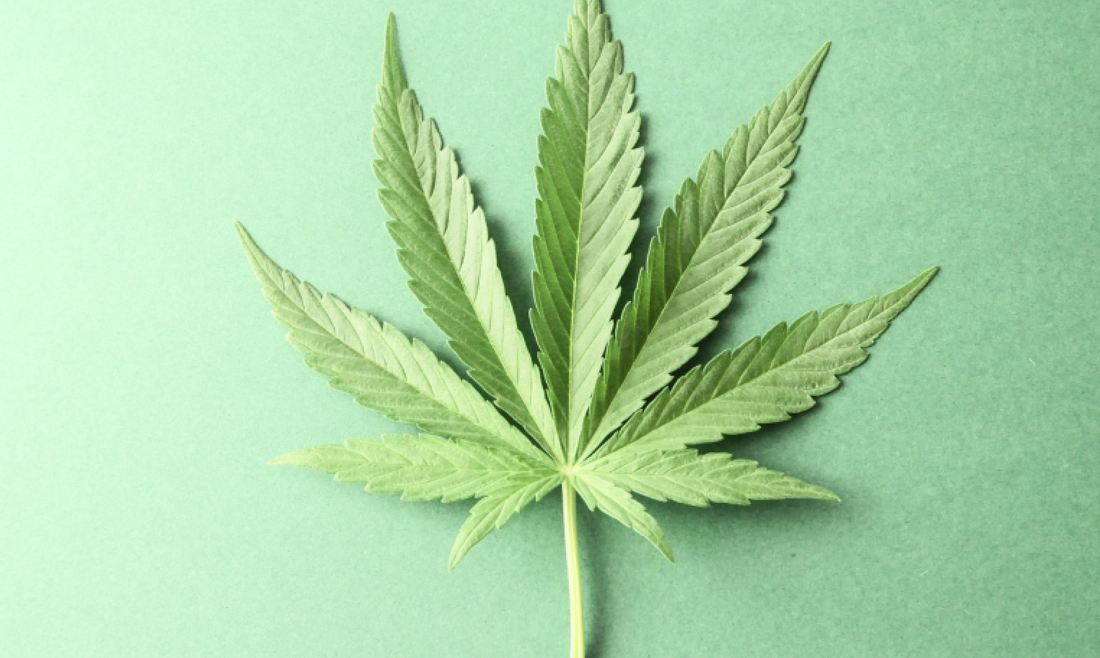
Can Marijuana Aid in Treating Colds?
While colds are a prevalent health issue, marijuana has recently gained attention as a potential treatment for various medical conditions. This leads to an important inquiry: Does marijuana provide any benefits in managing cold symptoms?
Current research does not specifically endorse or prohibit the use of cannabis for colds. Unlike conventional cold remedies, marijuana hasn't been developed to directly combat the viruses responsible for colds. However, individuals might find relief in easing certain symptoms like nausea or headaches through cannabis use. It is crucial to exercise caution, as cannabis can irritate the respiratory system, which may be already compromised during a cold. This could potentially worsen coughs and other respiratory symptoms. This article will explore the suitability of using cannabis for colds and flu, discuss the safest ways to consume marijuana when ill, and highlight some of the most effective cannabis strains for these conditions.

Is It Safe to Smoke Marijuana During a Cold or Flu?
The question of whether it is safe to smoke marijuana during a cold or flu is complex. While there's no explicit restriction on cannabis use during these illnesses, it is advisable to consult a healthcare provider before proceeding, especially considering the compromised state of the lungs during a cold or flu.
Smoking cannabis can irritate the respiratory system and may intensify symptoms like coughing and congestion. It might also temporarily impair lung function, which is less than ideal when battling a cold or flu.
Can Marijuana Alleviate Specific Cold Symptoms?
Certain cold symptoms may be alleviated by cannabis, which is known for its pain-relieving, anti-nausea, and sleep-improving properties. Here's how cannabis might help:
Pain Relief: Cannabis could be effective in managing headaches and body aches by targeting inflammation and reducing discomfort.
Nausea Management: THC in cannabis is renowned for its anti-nausea effects and might be beneficial for those experiencing queasiness due to a cold.
Improved Sleep: The sedative qualities of cannabis can aid in relaxation and enhancing sleep quality. Strains with a higher THC content are often recommended for their sleep-inducing effects.
Increased Appetite: A common cold symptom is loss of appetite, and THC-rich cannabis strains can stimulate hunger.
Guidelines for Using Marijuana Safely While Having a Cold
When considering marijuana use during a cold, here are some tips to ensure safety:
Evaluate Your Symptoms: Avoid smoking cannabis if you have severe coughing, chest congestion, or breathing difficulties. When dealing with severe coughing, chest congestion, or breathing difficulties, it's important to understand the potential risks associated with smoking cannabis under these conditions. Although cannabis is known for its therapeutic benefits in various contexts, smoking it while experiencing these respiratory symptoms can be counterproductive and potentially harmful.
Impact on Respiratory Health
Smoking cannabis, like smoking any substance, involves inhaling various chemicals and particulate matter into the lungs. This can irritate the respiratory tract, especially when it's already inflamed or congested due to a cold, flu, or other respiratory conditions.
Exacerbation of Cough and Congestion: Smoking cannabis can irritate the bronchial passages, potentially worsening a cough or aggravating chest congestion. This irritation can lead to increased mucus production and a prolonged recovery period from the underlying respiratory issue.
Breathing Difficulties: For individuals experiencing breathing difficulties, smoking cannabis may further compromise lung function. The act of inhaling smoke can trigger bronchospasm or tightening of the airways, making breathing more challenging and potentially leading to more severe respiratory issues.
- Alternative Consumption Methods
If you're considering using cannabis for its medicinal properties while experiencing severe respiratory symptoms, it's crucial to explore alternative methods of consumption that do not involve smoking. These alternatives can provide the desired effects of cannabis without the risks associated with smoking:
Edibles: Cannabis-infused edibles bypass the respiratory system entirely, offering a smoke-free method of consumption. However, it's important to note that edibles have a delayed onset and can produce more potent and longer-lasting effects, so dosing must be approached with caution.
Tinctures and Oils: Sublingual tinctures and oils are another smokeless option. They are placed under the tongue, allowing for relatively quick absorption into the bloodstream without respiratory irritation.
Topicals: For localized relief, such as pain or inflammation, cannabis-infused creams and balms can be applied directly to the skin. These products do not produce psychoactive effects and do not impact the respiratory system.
Stay Hydrated: Both cannabis and colds can lead to dehydration. Drinking plenty of fluids is essential for recovery and overall health.
The connection between dehydration and both cannabis use and colds is a critical health consideration. Dehydration can exacerbate the symptoms of a cold and can also be a side effect of cannabis use. Therefore, maintaining adequate hydration is not only vital for recovery from a cold but also for overall health, especially when using cannabis.
Dehydration Risks with Cannabis and Colds
Cannabis and Dehydration: Cannabis, particularly when smoked, can affect the body's hydration levels. The use of cannabis can lead to dry mouth and eyes, symptoms often associated with dehydration. Additionally, cannabis can affect the body's ability to regulate temperature, which might lead to increased fluid loss.
Colds and Dehydration: When suffering from a cold, the body can lose fluids through fever, sweating, and increased nasal secretions. Dehydration during a cold can worsen symptoms like dry cough, fatigue, and headache, and it can slow down the overall recovery process.
- The Role of Fluids in Recovery and Health
Drinking plenty of fluids is a cornerstone of managing both the effects of cannabis and the symptoms of a cold:
Facilitates Bodily Functions: Proper hydration is essential for various bodily functions, including maintaining blood volume, regulating body temperature, and allowing for cellular processes to occur efficiently.
Eases Cold Symptoms: Adequate hydration can help thin mucus, making it easier to expel, and can alleviate symptoms like a sore throat and cough.
Counters Dry Mouth from Cannabis: Regular fluid intake can help mitigate the dry mouth often experienced by cannabis users, maintaining oral health and comfort.
Supports Immune System Function: Especially important during a cold, hydration is crucial for the optimal functioning of the immune system, aiding in the efficient fight against viruses.
- Recommended Fluid Intake
While water is the most straightforward and effective way to stay hydrated, other fluids like herbal teas, broths, and fruit-infused water can also contribute to maintaining hydration. It's important to avoid or limit beverages that can lead to further dehydration, such as those containing caffeine or alcohol.
Monitor Fluid Intake: Pay attention to the amount and frequency of fluid intake. The general guideline is to drink at least 8-10 glasses of water a day, but this can vary based on individual needs, especially when dealing with a cold or using cannabis.
Look for Signs of Dehydration: Be aware of dehydration symptoms, such as dark urine, dry skin, fatigue, and dizziness. These signs indicate the need for increased fluid intake.
For individuals using cannabis, particularly those also dealing with a cold, focusing on hydration is crucial. Both cannabis use and cold symptoms can lead to dehydration, which can worsen symptoms and delay recovery. Regular and adequate fluid intake is key to maintaining overall health, easing cold symptoms, and mitigating some of the side effects of cannabis use. Always consider consulting healthcare professionals for personalized advice, especially in the context of illness and cannabis use.
Moderate Dosage: Begin with a lower dose of cannabis and gradually increase as necessary, allowing your body to adapt.
When considering the use of cannabis while having a cold, it's crucial to understand the significance of starting with a moderate dosage. This approach involves beginning with a lower dose and gradually increasing it as necessary, allowing your body to adapt and respond appropriately. This cautious strategy is particularly important when your immune system is already compromised due to a cold.
Starting with a Lower Dose
Minimizing Adverse Effects: Beginning with a small dose helps in minimizing potential adverse effects. This is especially important when your body is already dealing with the stress of a cold. A lower dose reduces the risk of overwhelming your system, which can be particularly sensitive during illness.
Assessing Tolerance: A cold can affect how your body processes substances, including cannabis. Starting with a lower dose allows you to gauge your body's current tolerance and responsiveness to cannabis, which might be different from when you are healthy.
- Gradual Increase as Necessary
Monitoring Symptom Relief: By gradually increasing the dose, you can carefully monitor how your symptoms are responding to cannabis. This helps in finding the optimal dose that provides relief without causing any unnecessary side effects.
Adapting to Body's Response: As your body fights the cold, its response to cannabis might change. A gradual increase allows you to adapt the dosage according to your evolving needs and responses during the course of the illness.
- Safety and Efficacy
Balancing Benefits and Risks: A moderate approach ensures that you balance the potential benefits of cannabis in alleviating cold symptoms with the risks of exacerbating them, particularly respiratory symptoms.
Consulting Healthcare Providers: It’s advisable to consult with a healthcare provider regarding the use of cannabis during a cold. They can provide guidance on appropriate dosages and consumption methods based on your specific health condition and medical history. Moderating the dosage of cannabis is a key strategy when using it during a cold. Starting with a lower dose and gradually increasing it allows your body to adapt and helps in identifying the most effective and safe amount for symptom relief. This approach minimizes risks and ensures that the use of cannabis is tailored to your body's current state and needs. As always, seeking advice from healthcare professionals can provide additional guidance and support in managing your health effectively.
Drug Interactions: Be mindful of potential interactions between cannabis and any cold or flu medications you might be taking. Consulting with a healthcare provider is advisable. When discussing the potential interactions between cannabis and cold or flu medications, it's important to understand that both substances can affect the body in different ways, and combining them may lead to unexpected or adverse reactions. Here are some key points to consider:
Impact on the Central Nervous System: Both cannabis and many cold or flu medications can affect the central nervous system. For instance, some cold medications contain ingredients that can cause drowsiness or dizziness. When combined with cannabis, which can also cause similar effects, the overall impact may be amplified, potentially leading to increased sedation or impaired motor skills.
Effect on the Respiratory System: Cannabis, especially when smoked, can have an impact on the respiratory system. This can be particularly concerning if you're already experiencing respiratory symptoms due to a cold or the flu. Some over-the-counter cold and flu medications also have components that can affect breathing or lung function.
Interactions with Medication Metabolism: The liver metabolizes many medications, including certain cold and flu drugs. Cannabis can affect liver enzymes that are involved in drug metabolism. This interaction can potentially alter the effectiveness of the medications, either diminishing their efficacy or increasing the risk of side effects.
Alteration of Cognitive Function: Both cannabis and some cold or flu medications can affect cognitive functions such as memory, attention, and decision-making. Using them in combination can potentially exacerbate these effects, which can be particularly risky if you need to drive or operate machinery.
Immune System Considerations: While the impact of cannabis on the immune system is still a subject of research, it's worth considering how it might interact with your body's response to a cold or flu. Some medications taken for colds and flu aim to boost the immune response, and it's unclear how cannabis might affect this process.
- Given these potential interactions, it's highly advisable to consult with a healthcare provider before combining cannabis with cold or flu medications. A healthcare professional can provide personalized advice based on your specific health situation, the medications you're taking, and the form and amount of cannabis you're considering.
Remember, self-medication can often lead to unforeseen complications, and it's always safer to seek guidance from a medical professional, especially when dealing with multiple substances
Recommended Cannabis Strains for Cold and Flu
There's limited research on specific cannabis strains for cold and flu symptoms, but certain strains like Blue Dream, Cannatonic, and ACDC are considered beneficial due to their effects on common respiratory illness symptoms:
ACDC: A high-CBD strain offering pain relief without intoxicating effects.
Lemon Haze: Known for its relaxing and anti-inflammatory properties, useful for inflammation and relaxation.
Blue Dream: A balanced hybrid that can alleviate headaches, nausea, and reduce inflammation.
Jack Herer: Offers energy and mental clarity, beneficial for pain and inflammation management without strong psychoactive effects.
Cannatonic: A high-CBD strain noted for its anti-inflammatory benefits, suitable for those seeking therapeutic effects without a high.
Conclusion
While smoking cannabis might not be the best option when ill due to its potential respiratory system irritation, consulting with a healthcare professional can provide tailored advice considering your overall health. Stay informed with HappyMD for more insights on cannabis and its role in managing various health conditions.



.png)